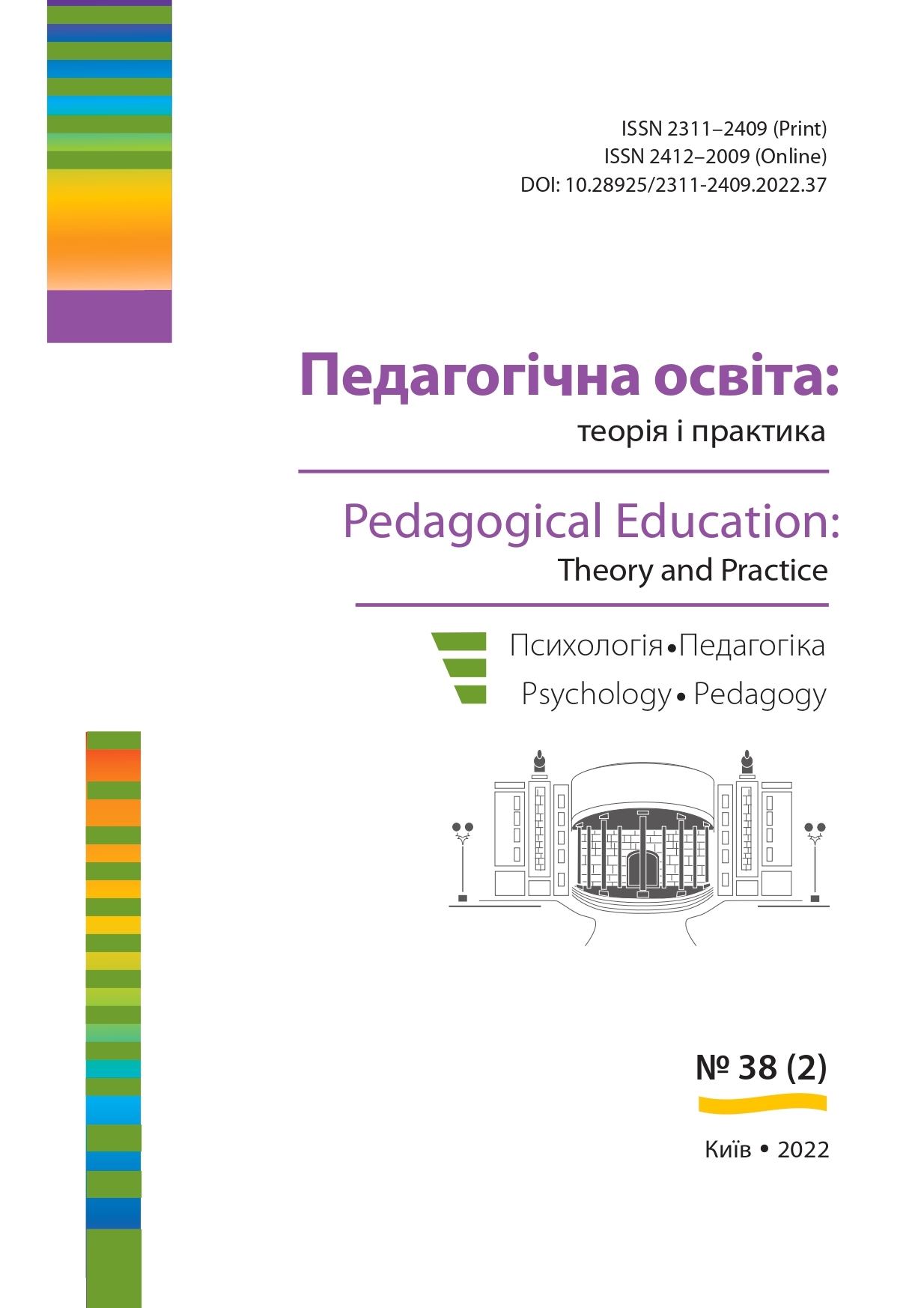DILECTINGS AS A PROJECT OF THE CONTEMPORARY TOOL FOR TEACHER’S DIGITAL LITERATURE EDUCATIONAL COMPETENCES
DOI:
https://doi.org/10.28925/2311-2409.2022.383Keywords:
: digital literacy skills, self-perceptions of digital literacy competencies, literary reading in lan- guage teaching.Abstract
Abstract
Statement of the problem. The article is devoted to highlighting the main provisions regarding the imple- mentation of the DILECTINGS project as a set of measures for all participants in the educational process digital literacy development
Research method. There were used digital reading methods, remote work methods using DLL and LDR Hub, the use of eTwinning/School Education Gateway platforms to perform digital reading tasks, the use of CANVAS technologies.
Data. Teachers developed the skills of pedagogical activities using digital reading technologies, working in Moodle and eTwinning/School Education Gateway. Students developed competencies in digital reading, use of technology to create video files.
Conclusions. The implementation of DILECTINGS project had provide formation of narrow and specialized competences in the use of technical means in educational activities
Downloads
References
REFERENCES
D’Amico, A. (2018). The Use of Technology in the promotion of Children’s Emotional Intelligence: The Multimedia Program “Developing Emotional Intelligence”. International Journal of Emotional Education, 10(1), 47-67.
Audrin, C., Audrin, B. (2022). Key factors in digital literacy in learning and education: a systematic literature review using text mining. Educ Inf Technol. https://doi.org/10.1007/s10639-021-10832-5
Blayone, T. J. B., Mykhailenko, O., van Oostveen, R., & Barber, W. (2018). Ready for digital learning? A mixed-methods exploration of surveyed technology competencies and authentic performance activity. Education and Information Technologies, 233(), 1377–1402. https://doi.org/10.1007/s10639-017- 9662-6
Cabello-Hutt, T., Cabello, P., & Claro, M. (2018). Online opportunities and risks for children and adolescents: The role of digital skills, age, gender and parental mediation in Brazil. New Media & Society, 20(7), 2411–2431. https://doi.org/10.1177/1461444817724168
Cladis, A. E. (2020). A shifting paradigm: An evaluation of the pervasive effects of digital technologies on language expression, creativity, critical thinking, political discourse, and interactive processes of human communications. E-Learningand Digital Media, 17(5), 341–364. https://doi.org/10.1177/2042753017752583
Cubeles, A., & Riu, D. (2018). The effective integration of ICTs in universities: The role of knowledge and academic experience of professors. Technology, Pedagogy and Education, 27(3), 339–349. https://doi.org/10.1080/1475939X.2018.1457978
Davies, L. L., Bode, K, Martin, S. K. & Sawyer, W. (2020). Reading in the (post)digital age: Large databases and the future of literature in secondary English classrooms. English in Education, 54(3), 299-315. https://doi.org/10.1080/04250494.2020.1790991
Dowthwaite, L., Perez Vallejos, E., Koene, A., Cano, M. & Portillo V. (2019). A comparison of presentation methods for conducting youth juries. PLOS ONE 14(6): e0218770. https://doi.org/10.1371/ journal.pone.0218770
Gil-Flores, J., Rodríguez-Santero, J., & Torres-Gordillo, J. J. (2017). Factors that explain the use of ICT in secondary-education classrooms: The role of teacher characteristics and school infrastructure. Computers in Human Behavior, 68, 441–449. https://doi.org/10.1016/j.chb.2016.11.057
Hall, L.A. (2020). How Youth and Adults With Negative Reading Histories Found a Way to Enjoy Reading. Journal of Adolescent & Adult Literacy, 63( 6), 675– 682. https://doi.org/10.1002/jaal.1046
Handayani, S., Youlia, L., Febriani, R.B., Syafryadin S. (2020). The use of digital literature in teaching reading narrative text. Journal of English teaching, applied linguistics and literatures, 3(2), 65-74. http:// dx.doi.org/10.20527/jetall.v3i2.8445
Karakoç Öztürk, B. (2021). Digital Reading and the Concept of Ebook: Metaphorical Analysis of Preservice Teachers’ Perceptions Regarding the Concept of Ebook. SAGE Open. https://doi. org/10.1177/21582440211016841
Kuhn, A., Schwabe, A., Boomgarden, H., Brandl, L., Stocker, G., Lauer, G., Brendel-Kepser, I., & Krause- Wolters, M. (2022). Who gets lost? How digital academic reading impacts equal opportunity in higher education. New Media & Society. https://doi.org/10.1177/14614448211072306
Lee, K.M, Park, S., Jang, B.G. & Cho, B.Y. (2019). Multidimensional Approaches to Examining Digital Literacies in the Contemporary Global Society. Media and Communication, 7(2), 36–46. https://doi. org/10.17645/mac.v7i2.1987
Małecka, J. (2018). Internet Addiction among Primary School Children as a Civilisational Challenge.
Horyzonty Wychowania, 17 (42), 229-242. https://doi.org/10.17399/HW.2018.174218
Park, E., Kwon, M. (2021). Testing the Digital Health Literacy Instrument for Adolescents: Cognitive Interviews. Journal Medical Internet Researches, 23(3) : e17856. https://doi.org/10.2196/17856
Porat, E., Blau, I., Barak, A. (2018). Measuring digital literacies: Junior high-school students’ perceived competencies versus actual performance. Computer Education, 126, 23-36. https://doi.org/10.1016/j. compedu.2018.06.030
Seghayer, A.K. (2020). Investigating the adequacy of EFL Learners’ L2 digital literacy skills, consistency of self-assessed competence, and actual performance. International Journal of Computer-Assisted Language Learning and Teaching, 10(2), 1–22. https://doi.org/10.4018/IJCALLT.2020040101

